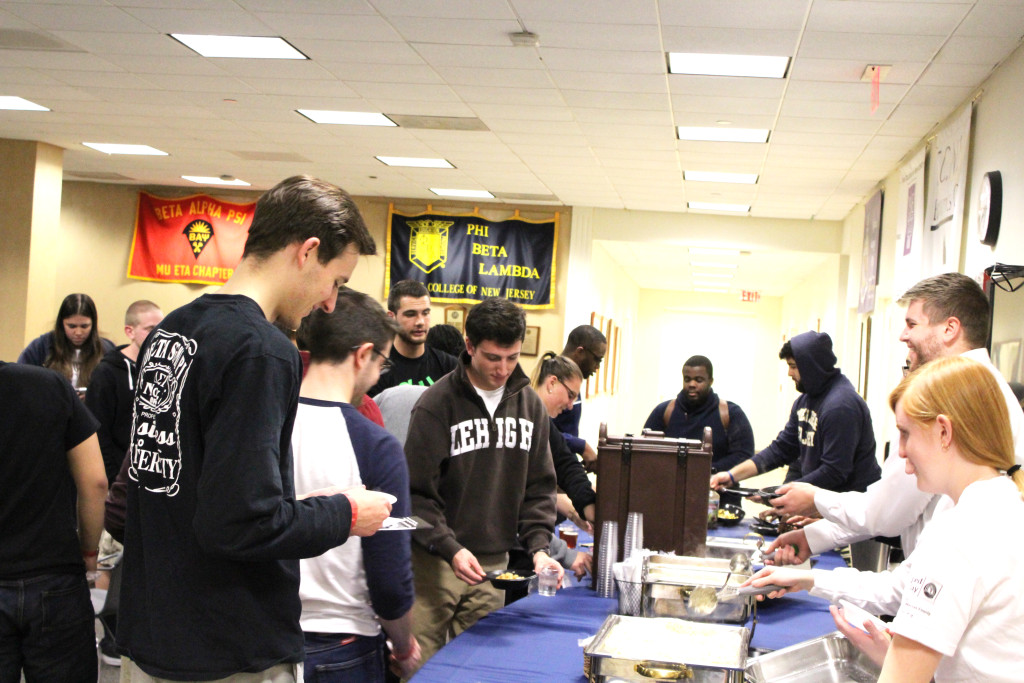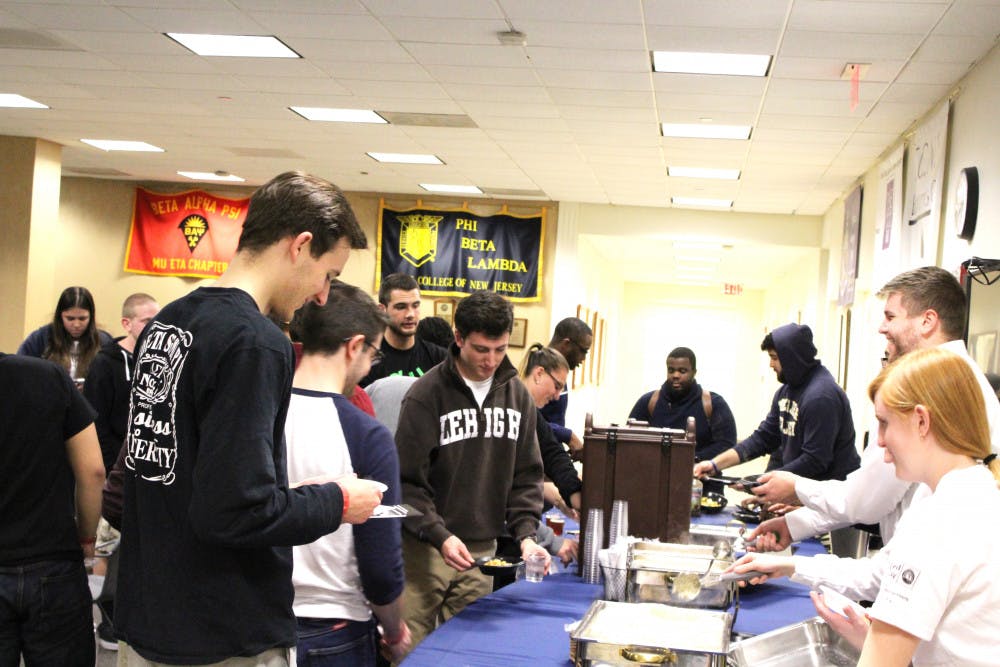By Jessica Ganga
Features Editor
Food is hard to come by. Constant hunger is a struggle for people in the lower class and is therefore commonly accepted. Water is not a nearby resource for many who end up having to walk five or even 10 miles a day to have water with their meals. This goes on each and every day.
For a majority of the world’s population, this is what they know and how they live. During Student United Way’s first annual Hunger Banquet on Tuesday, Nov. 16, the issue of hunger was brought to light for the students of the College with a dinner in the Business Building lounge.
“Hunger is an issue in the country and across the world,” said Raffaella Soriano, the president of Student United Way and a junior early childhood education and English double major. “I’m hoping that most people that go to this school don’t have to deal with the extremes when it comes to their daily meals.”

Students attending the banquet were able to experience and witness first-hand the differences in how people across the country and around the world eat on a daily basis.
Each student in attendance was split into four sections, each of which represented a different social class. Before everyone got a chance to have a meal, three guest speakers began the event by setting the scene of the banquet.
Elaina Boncich of Americorps VISTA United Way of Greater Mercer County gave an introduction about the global issue of hunger.
“Hunger affects everyone, in countries rich or poor and in urban or rural areas,” Boncich said. “Everyday resources like land and water are becoming harder to access… We are making progress. The number of hungry people has declined over the past two decades, but people still don’t have access to the food that they need.”
Evie Spadafora, a volunteer and patron services specialist at the Trenton Area Soup Kitchen (TASK) provided eye-opening facts about each group that the students represented and gave students a better idea of how many people struggling with hunger live around the world, and even right around the corner from the College, something Soriano wanted people to take away from the event.
“Poverty has become such a big issue in nearby towns such as Trenton, (N.J.), so this is a good way for people to relate the surrounding area to our school’s community,” Soriano said. “I want the school to have a connection with those that are suffering and realize ‘I can make a difference’ with just some basic knowledge.”
Once Spanish and linguistics professor Regina Morin described the menu for the evening, students were invited to get their meals.
The upper class, who represented 20 percent of the world’s population, did not have to leave their seats for food because they had the luxury of being served a delicious dinner of pasta, salad and bread with the choice of juice or water. Seconds were also offered to them after they finished their first helping.
Beans, rice and water were on the menu for the middle class, who had to get up to get their meals, but were still given a good amount of food.
The lower class had a different experience. When it was their turn to get their meal of a small bowl of rice and water, the women were instructed to remain seated while the men got their meals first. This represented how some women in poverty stricken countries let other people in their family eat before them, something that students were not used to.
“We had to wait for everyone else to get served before we can eat and even when it was our turn to eat, we had to wait for the men to eat before the women (were able) to eat,” sophomore applied math major Sarah Jennings said. “That wasn’t fun. I felt bad for the people that have to actually experience that.”
At the end of the event, the stomachs of the lower class students were still rumbling and all they wanted was more food. The event opened the eyes of the students that ate only a bowl of rice, as well as those that had to watch their peers eat less.
At one point during the banquet, Morin had middle class students move down to the lower class section to demonstrate how it is easy for a group of people to go from having a hot meal every day, to having to struggle for food.
“I think the biggest impact for me was seeing the transition from the middle class go to the lower class,” junior marketing major Chrystalla Socratous said.
Soriano ended the event with the wise words of the late Nelson Mandela that he spoke at an Oxfam event.
“We thank you for coming here today,” Soriano read. “Sometimes, it falls upon a generation to be great. You can be the great generation. Let your greatness blossom. Of course, the task will not be easy, but not to do this will be a crime against humanity. Against, which I ask all humanity to rise up.”







